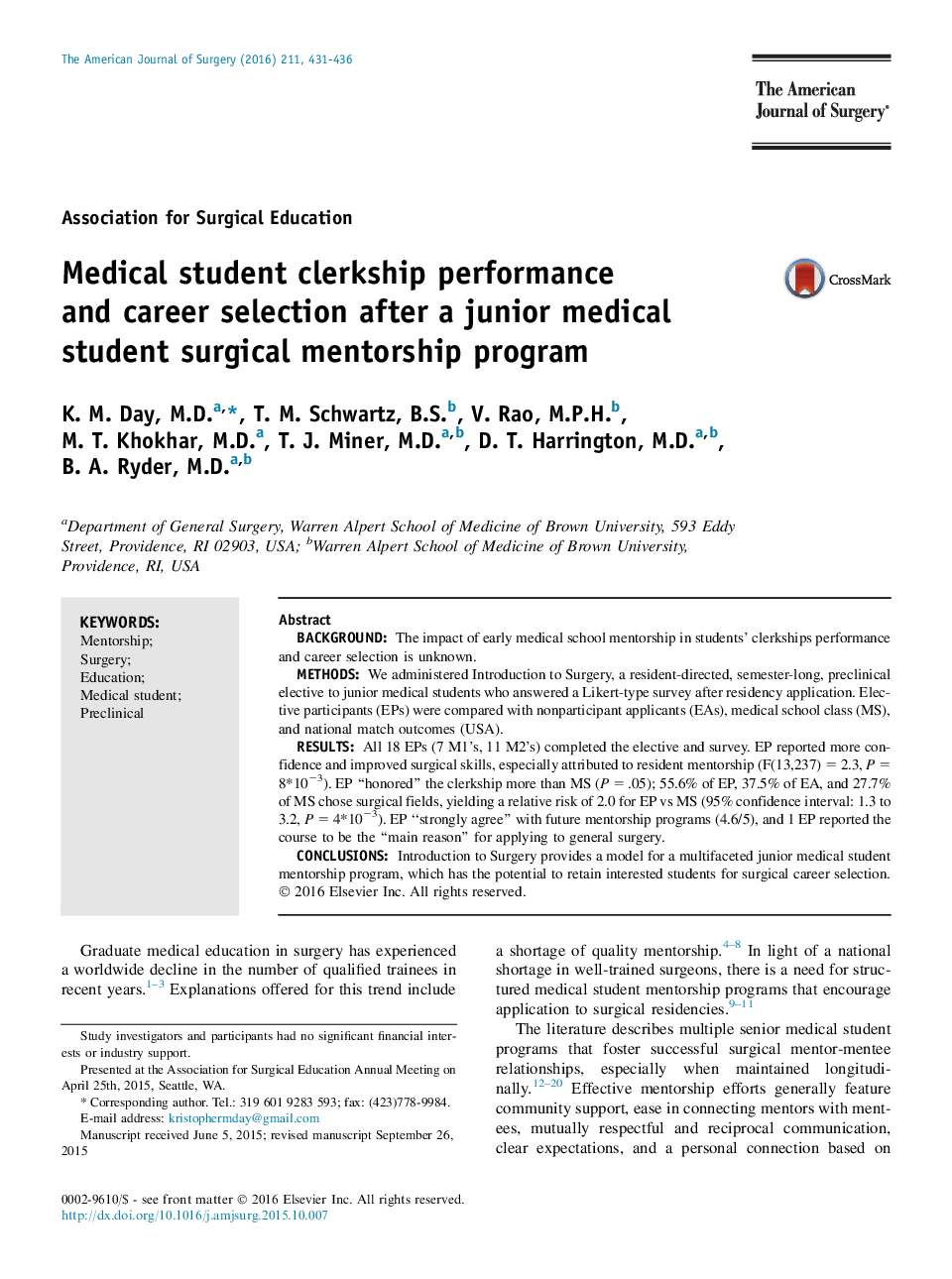| Article ID | Journal | Published Year | Pages | File Type |
|---|---|---|---|---|
| 4278162 | The American Journal of Surgery | 2016 | 6 Pages |
•We administered a resident-directed preclinical elective to junior medical students.•Didactic, clinical, operative, and skills sessions experiences were provided.•Participants reported improved confidence and surgical skills on a postcourse survey.•Participants “honored” surgery and matched into surgical fields at greater rates.
BackgroundThe impact of early medical school mentorship in students' clerkships performance and career selection is unknown.MethodsWe administered Introduction to Surgery, a resident-directed, semester-long, preclinical elective to junior medical students who answered a Likert-type survey after residency application. Elective participants (EPs) were compared with nonparticipant applicants (EAs), medical school class (MS), and national match outcomes (USA).ResultsAll 18 EPs (7 M1's, 11 M2's) completed the elective and survey. EP reported more confidence and improved surgical skills, especially attributed to resident mentorship (F(13,237) = 2.3, P = 8*10−3). EP “honored” the clerkship more than MS (P = .05); 55.6% of EP, 37.5% of EA, and 27.7% of MS chose surgical fields, yielding a relative risk of 2.0 for EP vs MS (95% confidence interval: 1.3 to 3.2, P = 4*10−3). EP “strongly agree” with future mentorship programs (4.6/5), and 1 EP reported the course to be the “main reason” for applying to general surgery.ConclusionsIntroduction to Surgery provides a model for a multifaceted junior medical student mentorship program, which has the potential to retain interested students for surgical career selection.
